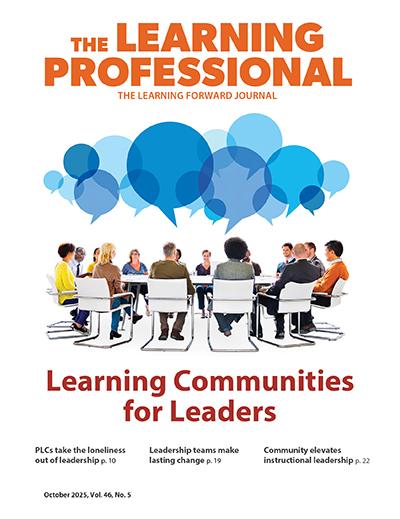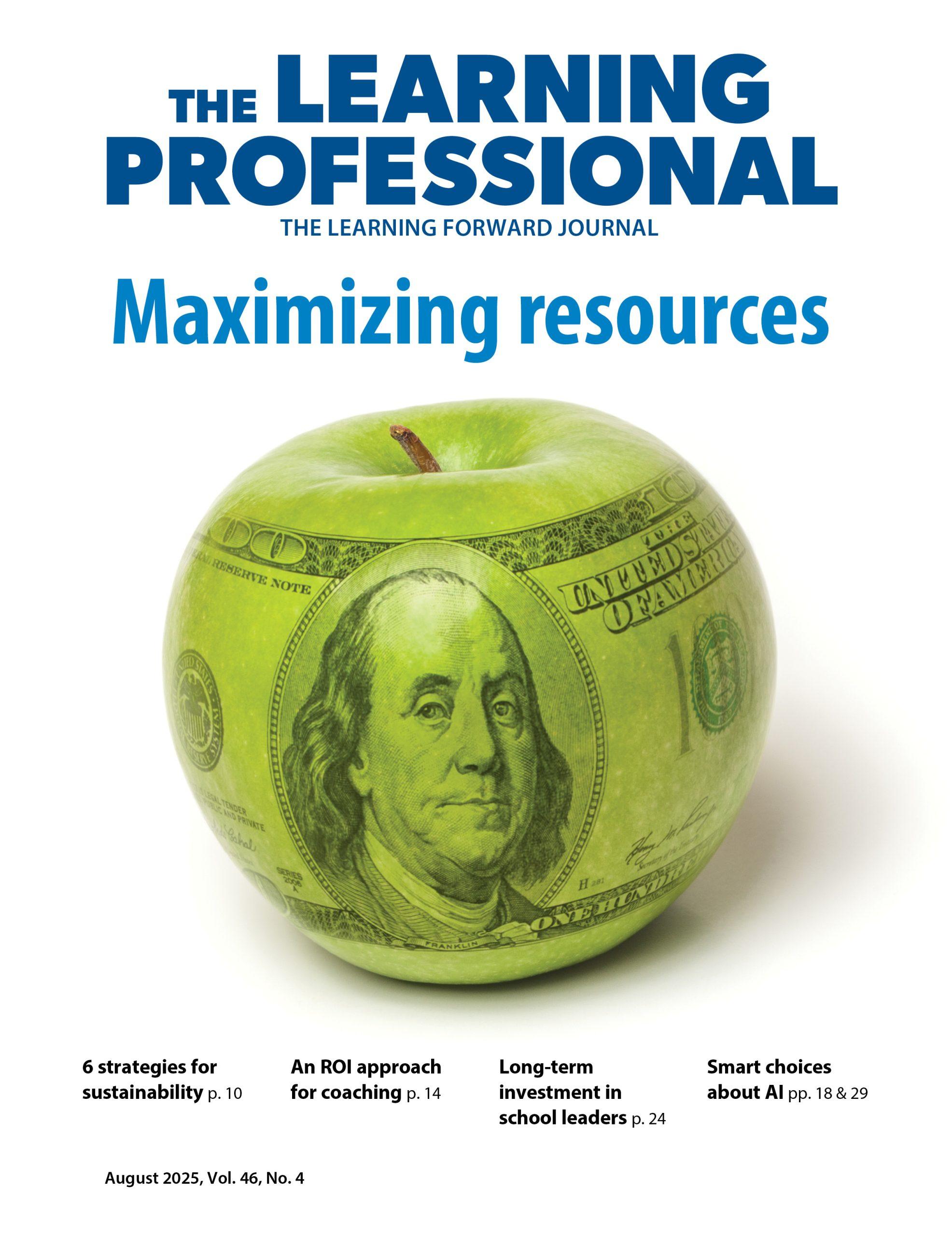FOCUS
Accentuate the positive
Video can motivate teachers to improve their skills
By Jody Flowers
Categories: Coaching, Learning designs, TechnologyDecember 2019
Vol. 40, No. 6
Read the remaining content with membership access. Join or log in below to continue.
Sed ut perspiciatis unde omnis iste natus error sit voluptatem accusantium doloremque laudantium, totam rem aperiam, eaque ipsa quae ab illo inventore veritatis et quasi architecto beatae vitae dicta sunt explicabo. Nemo enim ipsam voluptatem quia voluptas sit aspernatur aut odit aut fugit, sed quia consequuntur magni dolores eos qui ratione voluptatem sequi nesciunt. Neque porro quisquam est, qui dolorem ipsum quia dolor sit amet, consectetur, adipisci velit, sed quia non numquam eius modi tempora incidunt ut labore et dolore magnam aliquam quaerat voluptatem.
References
Allen, J.P., Pianta, R.C., Gregory, A., Mikami, A.Y., & Lun, J. (2011). An interaction-based approach to enhancing secondary school instruction and student achievement. Science, 333(6045), 1034-1037.
Allen, J., Gregory, A., Mikami, A., Lun, J., Hamre, B., & Pianta, R. (2013). Observations of effective teacher-student interactions in secondary school classrooms: Predicting student achievement with the classroom assessment scoring system — secondary. School Psychology Review, 42(1), 76.
Gregory, A., Ruzek, E., Hafen, C.A., Mikami, A.Y, Allen, J.P., & Pianta, R.C. (2017). My Teaching Partner-Secondary: A Video-Based Coaching Model, Theory Into Practice, 56(1), 8-45.
Hamre, B.K., Pianta, R.C., Mashburn, A.J., & Downer, J.T. (2007). Building a science of classrooms: Application of the CLASS framework in over 4,000 US early childhood and elementary classrooms. Foundation for Childhood Development, 30, 2008.
Hamre, B.K., Justice, L.M., Pianta, R.C., Kilday, C., Sweeney, B., Downer, J.T., & Leach, A. (2010). Implementation fidelity of MyTeachingPartner literacy and language activities: Association with preschoolers’ language and literacy growth. Early Childhood Research Quarterly, 25, 329-347.
Learning Forward. (2011). Standards for Professional Learning. Oxford, OH: Author.
Mashburn, A.J., Pianta, R.C., Hamre, B.K., Downer, J.T., Barbarin, O.A., Bryant, D., … & Howes, C. (2008). Measures of classroom quality in prekindergarten and children’s development of academic, language, and social skills. Child Development, 79(3), 732-749.
Categories: Coaching, Learning designs, Technology
Recent Issues
MAXIMIZING RESOURCES
August 2025
This issue offers advice about making the most of professional learning...
MEASURING LEARNING
June 2025
To know if your professional learning is successful, measure educators’...
NAVIGATING NEW ROLES
April 2025
Whether you’re new to your role or supporting others who are new,...
LEARNING DESIGNS
February 2025
How we learn influences what we learn. This issue shares essential...











